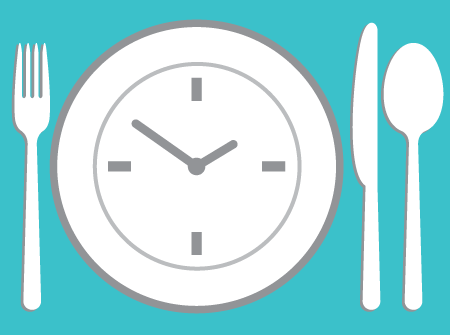
Eating more often and in smaller amounts reduces risk of obesity.
You’ve heard the expression, “you are what you eat.”
Is it also possible you are when you eat? Paula McIntyre, a registered dietitian with Marshfield Clinic, said that may be the case.
Breakfast matters
Meal timing and frequency can affect efforts at weight loss and overall cardiovascular health.
“There is research that shows people who skip breakfast are more likely to be overweight and are at increased risk of cardiovascular disease,” McIntyre said. “Observational studies show skipping breakfast is associated with higher risk of type 2 diabetes.”
Research also shows people who eat breakfast have better concentration and higher levels of energy. McIntyre stressed these findings are based on experience and observation, and more conclusive clinical research needs to be done.
Find the meal plan for you
McIntyre said eating more often and in smaller amounts may reduce your risk of obesity.
“The important thing to remember is, if a person increases the amount of meals they are eating daily, they need to make sensible choices about what they’re eating,” she said. “If you’re eating too much of the wrong things, eating more frequently leads to increased calorie intake and can cause weight gain.”
McIntyre suggests eating nutrient-dense foods like fruit rather than energy-dense foods like cookies for any diet. She stressed every person’s diet needs and goals are different.
“I sit down with patients and listen to their diet history and learn what their current eating patterns look like,” McIntyre said. “Then we determine what each person is willing to do and provide them with education on what they can eat, how much, how often and tools to meet their goals.”
Eat like a Zen master
Eating mindfully is one of the most important aspects of controlling your diet.
“Mindful eating is becoming aware and maintaining awareness of hunger and fullness signals,” McIntyre said. “It’s about respecting signals that tell when you are full or hungry.”
When people eat in front of the television, while on their phone or otherwise distracted, it becomes easy to overeat without realizing. It’s important to be in the moment with your meal so you’re aware of what goes in your body.
If you’re interested in changing your dietary habits, ask your primary care provider about getting a referral to a registered dietitian.
Shine365 meal plans:
Heart-healthy meal plan series
Clean eating with a whole foods diet series


If your primary care provider refers you to a dietitian do most insurance company's or Medicare pay for this service?
Hi, Nancy. This truly varies between insurances. Marshfield Clinic fee estimators can help you with cost and coverage questions particular to your insurance.
Thank you for reading Shine365. -Kirstie
What about Paleo breakfast? Are they good and safe for breakfast?
Hi, Hubert. I asked Shelly, a registered dietician, about this, and she said it really depends on what the breakfast is and your individual needs. Paleo is essentially a whole foods approach with some differences. The emphasis on lean proteins, healthy fats, fruits and vegetables is usually beneficial, but she recommends discussing diet changes with your doctor. Or, you can ask your doctor for referral to a nutritionist if you have specific questions and concerns regarding your diet.
I will share Paleo as a topic with our Shine365 team; it may be something we can expand on in the future. -Kirstie